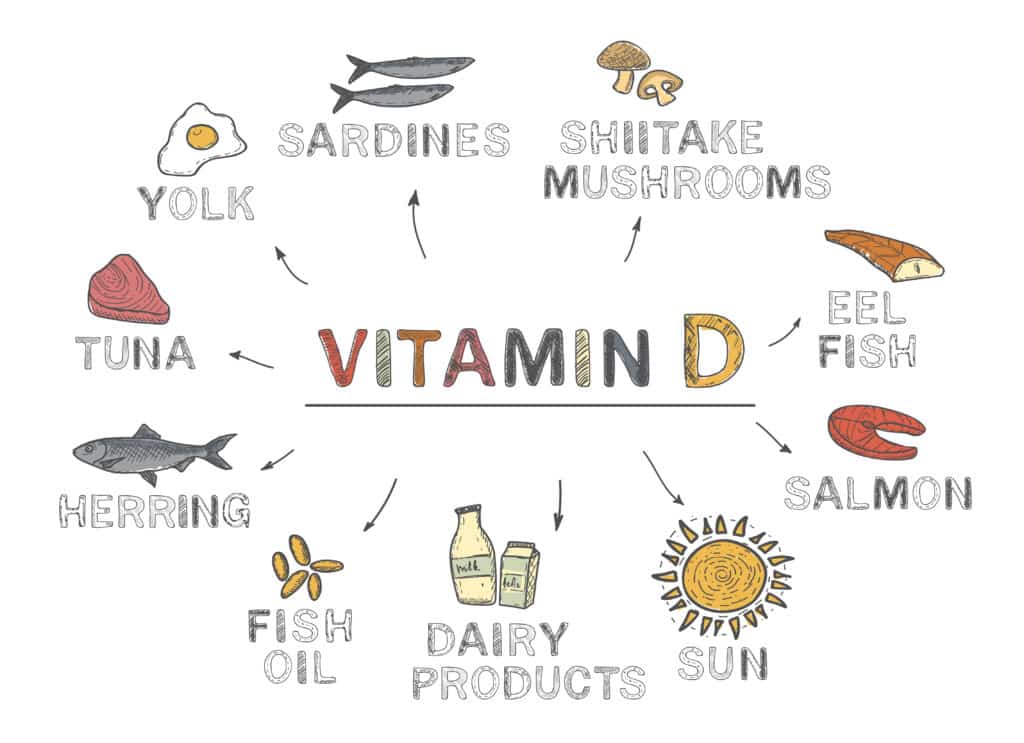Discover the power of Vitamin D and how it can improve your overall health. Read on for a comprehensive guide on Vitamin D benefits, sources, and recommended dosage.
What is Vitamin D?

Vitamin D is more commonly referred to as the “sunshine vitamin” because our bodies produce it when our skin is exposed to sunlight. What people may not know is what the purpose of this vitamin is. Vitamin D is a fat-soluble vitamin that is essential for maintaining healthy bones and teeth. As previously mentioned, this vitamin is the sunshine vitamin.
In today’s society, most people tend to work indoors. In fact, according to the Census Bureau, only 4% of Americans are employed in outdoor jobs! With everyone’s busy schedule, most people tend to see sunlight while walking to and from their cars to work. Even at that, it depends on what time they go to and get off work. Speaking from experience, healthcare workers tend to go in before the sun comes up and leave when the sun is down. Most of the time, we have no idea what the weather was like that day. With that being said, how much sun do you need in a day to get the recommended amount of Vitamin D?
In order to maintain a healthy blood level, one should get 10-30 minutes of midday sun several times a week. This also depends on if you have darker skin. If you are darker-complected, you may need a little more. Stop and think to yourself, “do I get enough Vitamin D?”. If you are being honest with yourself, you probably do not. I know I do not. This is why supplementation and eating the correct foods are so important. In this blog post, we will explore the benefits of Vitamin D, the sources of this nutrient, and recommended dosage to help you maintain optimal health.
Benefits of Vitamin D
Vitamin D offers a multitude of health benefits beyond its role in maintaining healthy bones and teeth. One of its most notable benefits is its ability to boost immune system function. This vitamin has been shown to help reduce the risk of respiratory infections, including the flu, and may also help reduce inflammation in the body.
In addition to its immune-boosting properties, Vitamin D has also been linked to a lower risk of chronic diseases, such as heart disease, diabetes, and multiple sclerosis. Research has shown that this vitamin can improve your mood and reduce the risk of depression, especially in people with seasonal affective disorder (SAD). Vitamin D may also help regulate insulin levels, reducing the risk of insulin resistance and supporting lung function and cardiovascular health. Overall, getting enough Vitamin D can help support your overall health and well-being. So, let’s recap on the quick benefits of Vitamin D:
- It boosts immune system function
- Helps reduce the risk of respiratory infections, including the flu
- It may help reduce inflammation in the body
- Linked to lower risk of chronic diseases, such as heart disease, diabetes, and multiple sclerosis
- Improves mood and reduces the risk of depression
- Regulates insulin levels, reducing the risk of insulin resistance
- Supports lung function and cardiovascular health
- Getting enough Vitamin D can help support overall health and well-being.
Sources of Vitamin D
As previously mentioned, sunlight is the primary source of Vitamin D, and our bodies produce it when our skin is exposed to sunlight. However, the amount of Vitamin D produced through the sunlight can vary depending on several factors, such as the time of day, season, latitude, and skin color. The most optimal time for our bodies to absorb this type of vitamin is around noon.
In most places in the summer, this also happens to be the hottest time of the day. In the Texas heat, I do not want to be outside, around noon, for even five minutes, little own ten to thirty minutes a day. Therefore, many people may choose to enhance their intake through food or supplementation to ensure they are getting enough of this nutrient.

If you choose to supplement through food, there are a variety of foods you can pick from. Foods that are rich in Vitamin D include fatty fish, such as salmon and tuna, egg yolks, and fortified foods, such as milk and cereal. If one chooses to use supplements, there is a wide variety that is available and can be taken in pill or liquid form. It’s important to note that the amount of this vitamin in supplements can vary, what is in and not in the actual product, and where the product is made. So it’s important to read the labels carefully and talk to a healthcare provider to determine the appropriate dosage.
Future Fitness Training Supplements are NSF certified, which means that their supplements have been through rigorous testing to comply with all required standards. They are also manufactured in an FDA-registered facility that is third-party lab tested. What this means is that their products demonstrate that the product is safe and effective for their intended use and that their products meet federal quality standards, all while being manufactured in the USA. With whatever product you choose, make sure you know what you are putting in your body. Some products are not as pure as others.
What people may not think about when taking supplements is how the supplement is best absorbed. As mentioned before, Vitamin D is a fat-soluble vitamin. This means that it is best absorbed with fats in order to have optimal absorption. If you choose to obtain your Vitamin D from food sources, combine your source with fats such as coconut oil, nuts, etc., to get the best absorption.
There are also two different types of Vitamin D. Vitamin D3 which are commonly referred to as cholecalciferol, and Vitamin D2, ergocalciferol. Vitamin D3 is found in animal-based foods, and Vitamin D2 is found in other sources, such as mushrooms. Vitamin D3 is considered the more active form because it has been found to be more effective at increasing serum levels (blood levels) in vitamin D.
Recommended Dosage of Vitamin D
The recommended daily intake of Vitamin D varies based on age, gender, and other factors. In general, adults should aim to get at least 600-800 IU of Vitamin D per day. However, some people may need more, especially those who have limited sun exposure or a Vitamin D deficiency. People who are at higher risk of Vitamin D deficiency, such as those who have darker skin, are obese or have certain medical conditions, may need higher doses of Vitamin D.
It’s important to talk to your healthcare provider to determine the appropriate dosage for you. Your healthcare provider can perform a blood test to determine your Vitamin D levels and recommend an appropriate dosage based on your individual needs. It’s also important to note that too much of this vitamin can be harmful, so it’s important to follow your healthcare provider’s recommendations for dosage.
Conclusion
In conclusion, Vitamin D is an essential nutrient that plays a crucial role in maintaining overall health. From boosting immune system function to reducing the risk of chronic diseases and improving mood, the benefits of this vitamin are numerous. While sunlight is its primary source of Vitamin D, many people may need to supplement their intake through food or supplements to ensure they are getting enough of this nutrient.
The recommended daily intake of this vitamin varies based on age, gender, and other factors. Adults should aim to get at least 600-800 IU of Vitamin D per day, but some people may need more. It’s important to talk to your healthcare provider to determine the appropriate dosage for you and to ensure that you are meeting your daily Vitamin D needs.
By incorporating Vitamin D-rich foods into your diet or taking supplements as needed, you can reap the numerous health benefits that this nutrient has to offer. Remember to talk to your healthcare provider about your specific Vitamin D needs and to follow their recommendations for dosage. With adequate Vitamin D intake, you can maintain strong bones, support immune system function, and enjoy optimal overall health and well-being. If you don’t know where to start, FFT Nutrition can help you with that. We can provide information and guidance to help you become a healthier version of you!





